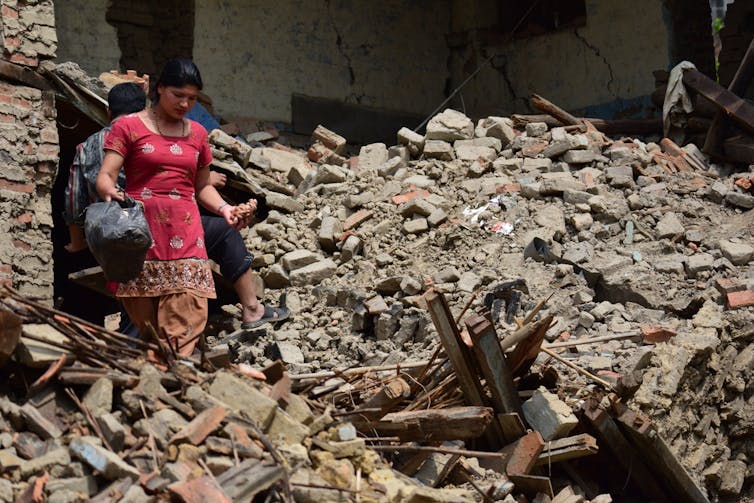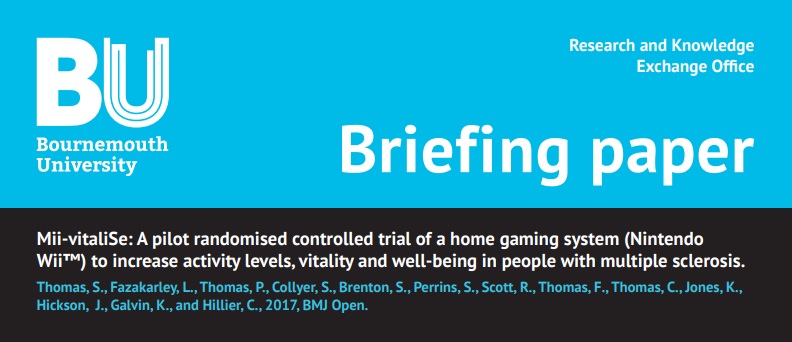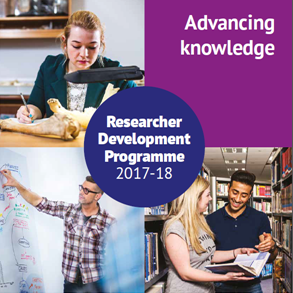Despite the bright sunshine in the first half of the week, the snowy week caused a fair amount of disruption, but there was plenty to read in the new HE Regulatory Framework launched on Wednesday.
HE Regulatory Framework
On Wednesday the OfS launched the revised HE Regulatory Framework at their inaugural conference. The Minister for Universities declared himself to be the “Minister for Students” and to many in the room his speech sounded fairly ominous. You can read the speech here (“a revolution in accountability”). There’s an article by Dods here on Politics home.
You’ll remember the detail on the proposed new framework from the December policy updates and you can read BU’s response to the consultation here.
The main changes are:
- the Basic category of registration is gone. The regulation of these providers was going to be very light – and arguably ineffective. There is some concern that these are the majority of the currently unregulated providers, and that the risk from these providers is greater than the (slightly smaller) number of regulated providers. The OfS will have plenty to be getting on with without dealing with these providers.
- A stronger role for students in regulation: ““student engagement” has been added to the list of principles, with the governing body having to ensure that “all students have opportunities to engage with the governance of the provider, and that this allows for a range of perspectives to have influence”.
- The new approach to student protection plans has been welcomed (although it may be very bureaucratic).
- Compulsory TEF for larger institutions ie those with more than 500 HE students
A Wonkhe guest blogger writes on the danger of over-reliance on data to regulate the HE sector and highlights more innovative design interventions such as ‘nudge’ theory claiming it incentivises compliance from the outset.
The folks at Wonkhe have gathered all the materials here. It is worth looking at the Ministerial instructions to the OfS to see what the priorities are.
Widening Participation
The OfS released the Access and Participation plans guidance (2019/20) and associated documentation on Wednesday at their launch event.
In the Government guidance to OfS there is a continued emphasis on demonstrating robust evidence of impact for the spending interventions universities support – ‘invest wisely’, incorporating TEF data, and further Transparency measures that the OfS might require universities to publish to advance equality of opportunity. Mention is made of OfS and the ‘levers at its disposal’ to regulating for continuous improvement of access and participation, and the increase in non-continuation amongst WP students in recent years. Flexibility of provision (including part time study, accelerated degrees, degree apprenticeships, evening degrees and foundation years) are also included, as is closing the differential degree and employment outcomes gap.
- Given the strength of our ambitions for access and participation we will be looking for the OfS to push providers to set challenging targets for themselves within their plans and so drive further improvements across the sector. The goals for higher education2 published under the previous Government remain in place and our expectation is that the OfS will want to consider these when developing its own ambitions for the sector.
- We understand that given the time-constraints, the OfS will not be able to bring about substantial changes through plans for 2019-20. However, we are clear that we continue to expect high ambition and continuous improvement in the plans that are approved. We would expect the OfS to develop and consult on further enhancements to its expectations for plans in future years.
(Taken from the Government guidance to OfS)
The links to schools sponsorship, one of Theresa May’s original ambitions, remain although they are relatively low-key:
- This Government has emphasised its strong desire to harness the resources and expertise of our higher education sector to work in partnership to improve outcomes across the state school system. The Government expects more higher education providers to establish stronger long-term relationships with schools. This could include becoming involved in school sponsorship, opening free schools and supporting mathematics education in schools (although support need not be limited to those means), with the aim of raising attainment and progress for disadvantaged and under-represented groups so that more pupils are qualified to progress to higher education. As part of this providers should be able to demonstrate clearly the impact their support is having on the schools and pupils.
In the OfS guidance to institutions:
- We expect all providers, in particular those with the weakest performance on access, to demonstrate how they are developing deeper relationships with schools and colleges to raise attainment and enable more students from underrepresented groups to enter higher education if they wish to…We also expect that we will see greater numbers of higher education providers sponsoring schools (either as a main sponsor or co-sponsor) or with advanced plans to do so.
There is also an expectation for universities to ‘do more’ for careers outreach (see page 11).
From the guidance on the wise investment, whereby a university chooses which Access and Participation interventions to support:
- It is, of course, for providers to invest their own money as they see fit, but it is in their interests to take evidence-led approaches and we think it is important that the OfS challenges investment for which there is little justification, based on evidence and the provider’s targets and performance. We expect the OfS to be firm with providers about the way their investment should be allocated, encouraging more investment in outreach and other activities, and less on financial support where appropriate. We also expect that financial support should be backed up by clear and robust evaluation plans and supporting evidence that shows that the investment is proportionate to the contribution it is expected to make towards widening access.
The guidance also sets out the expectation that the OfS will continue to advise providers on effective practice. And hints the Government are looking for their regulator to bare their teeth more often:
- The establishment of the OfS provides an opportunity to consider afresh the arrangements for monitoring and reviewing access and participation plans….We will be looking for the OfS to challenge those providers that are not judged to be taking sufficient steps to meet the commitments in their access and participation plans. We would also expect the OfS to consider the action they might take in relation to those providers…that include poorly focused measures in their plans that are not supported by robust evaluation….The OfS will have a broad range of enforcement powers available to it where it considers that a provider has failed to comply with commitments set out in its access and participation plan and so breached an ongoing registration condition. These could include increased monitoring, imposing additional specific registration conditions or imposing a monetary penalty…The OfS will also have powers to refuse to renew an access and participation plan or suspend a provider’s registration (entirely or for specified purposes) or de-register a provider.
Part-time Study
In December OFFA commissioned HESA and CFE to research part-time students aiming to understand the reasons behind the decline and understand an effective provision offer. Existing HESA data has been analysed alongside a fresh survey investigating students’ motivations for studying part-time and identifying the barriers and enablers to access and progression. Case studies are also being undertaken to ‘provide insights for institutions seeking to recruit and tailor their support for different groups of part-time students, as well as improving access and provision across the sector’. The full findings will be released in April, however, on Tuesday HESA published a first update.
The data shows the widely recognised drop in part time recruitment associated with the introduction of higher fees occurred but a downward trend was already visible from 2008/09. The data delves deeper to highlight the overall influence the decline of ‘other’ undergraduate study is having on the overall decline. HESA pose the following questions:
- Is the demand for part-time courses reducing?
- Is there a lack of supply of part-time courses?
- Is it a mixture of both supply and demand factors combining to exacerbate the decline
There is also a drop within the mature student grouping for those aged 40 years and over (with proportionally part time students aged up to 25 compared to the past). HESA state the sector must therefore consider the factors that may be switching mature learners off this type of study – for instance, are the numbers studying for self-interest reducing, or are retraining opportunities becoming restricted?
When combing deprivation factors (Polar 4 – low participation neighbourhoods and highest qualification on entry) there is an even sharper decline in ‘other’ undergraduate entrants. HESA ask:
- Why do other undergraduate courses now feel less appealing for disadvantaged students when choosing to study part-time?
- In which subjects are entry numbers collapsing, and what will the knock-on effect be for skills in our economy?
They go on: For example, we know from existing HESA data that entry into Nursing courses continues to decline, so what impact will this have on skills shortages within the NHS, particularly in light of Brexit? We will consider these questions further as the research progresses.
Social Mobility
The Sutton Trust have published Home and Away. Their research explores how staying at home and studying locally is strongly differentiated by ethnicity and social background.
They found that:
- Contrary to traditional assumptions, only 1 in 10 students move long-distance to attend university.
- Disadvantaged students are over three times more likely to live at home whilst they study.
- State school students are over twice as likely to commute from home to university.
- British Pakistani and British Bangladeshi students are six times more likely to stay at home whilst they study.
They recommend greater financial assistance to help disadvantaged young people meet the increased cost of moving out and to meet the needs of ‘commuter students‘ – especially given their socio-economic make-up.
- “The traditional view of what it means to go away to university, moving out and far away, is very much the preserve of white, middle class and privately educated young people from the South of England” – Dr Michael Donnelly, co-author of Home and Away
Home and Away received national coverage from the BBC, The i, The Herald, TES, Press Association, Metro and Buzzfeed among others.
Unpaid Internships
In January The Sutton Trust published Internships- Unpaid, unadvertised, unfair. This week they announced the government has committed to tackling unpaid internships ‘by improving interpretation of the law and enforcement action taken by HMRC in this area’. See pages 17, 37, 46-48, 73 of the Taylor Review for the most relevant detail on unpaid internships and the Government’s acceptance of the recommendations. Here are some key excerpts:
- The government accepts the recommendation of the review. Exploitative unpaid internships should not exist and we will work to eradicate these. We will take action to improve the interpretation of the law and the enforcement action taken by HMRC in this area to help stamp out illegal unpaid internships.
- The law is clear that interns who are classed as workers must be paid at least the NMW/NLW. An employer cannot avoid paying someone the minimum wage simply by calling them an ‘intern’ or saying that they are doing an internship. Determining whether an individual is ‘working’ is based on the presence of multiple factors; there is not a single determining feature of a worker.
- We will take further steps to engage with sectors where unpaid internships are prevalent and with bodies that represent interns, such as university careers services, to uncover good practice examples that should be highlighted and proliferated.
- The concentration of this problem within particular sectors provides the opportunity for targeted action. This government continues to invest heavily in minimum wage enforcement, increasing the budget to £25.3m for 2017/18, up from £13m in 2015/16. HMRC already pro-actively contacts employers who have advertised for unpaid internships to ensure they are aware and compliant with the law. Over 500 employers have been contacted in the last three months. Furthermore, in the coming year, we will formally ask HMRC to prioritise NMW enforcement efforts to focus activity on employers who use unpaid interns, through intelligence-led enforcement.
Policy Impact
Colleagues wanting to engage and have an impact on Government policy may be interested in a new MOOC (Massive Open Online Course) to learn about select committees. UK Parliament Explored the Work and Role of Select Committees launches next week on 5 March. It will cover:
- An overview of the work and role of select committees’ work in the House of Commons and the House of Lords.
- The focus of select committee inquiries in each House.
- Cross-party membership of select committees, including the process for selecting chairs and members.
- How select committees have evolved and changed over time.
- How select committee inquiries work, the different steps in the process.
- A greater understanding of the potential impact of select committee reports and recommendations.
- How members of the public can engage with select committees.
Future Learn also run an Introduction to the UK Parliament: People, Processes and Public Participation. The course covers:
- the difference between Parliament and Government including differing roles and responsibilities
- the three parts of Parliament and the role Parliament plays in scrutinising the work of the Government
- an introduction to the work of the House of Commons and the House of Lords
- how Parliamentary Questions are used by MPs and members of the House of Lords to hold the Government to account
- the difference between oral and written questions, and how questions can be used to seek immediate answers on urgent or important matters
- what happens during Prime Minister’s Questions and public perceptions of PMQs
- debates in Parliament, including some of the rules and conventions
- the role and work of select committees
- the different types of Bill, and the process of how a Bill becomes a law
- the effect that changes in the law can have on individuals and on society, with reference to specific case studies
- the different ways the public can input in the work of the UK Parliament.
Follow this weblink to register interest in the Intro to Parliament course.
Consultations
Click here to view the updated consultation tracker. Email us on policy@bournemouth.ac.uk if you’d like to contribute to any of the current consultations.
OfS Board Recruitment Scrutiny
Despite Toby Young’s resignation from the OfS Board the controversy surrounding his appointment began afresh on Tuesday (and may have made Wednesday’s launch a bit uncomfortable). The Commissioner for Public Appointments Report on the OfS Board recruitment campaign was published – both Times Higher and Civil Service World cover the report including:
- the criticism levelled at Jo Johnson for his direct encouragement for Toby to apply for the role,
- that Justine Greening’s concerns at Toby’s proposed appointment were quashed by DfE officials,
- that while checking historical social media activity it not considered ‘proportionate’ for Board appointments, and therefore wasn’t undertaken for Toby, such checks were conducted for the student representative
- and there was a further unpublished requirement that the student representative shouldn’t be linked to Union activity.
Angela Rayner (Labour) asked an urgent question in the House on Tuesday: To ask the Secretary of State for Education to make a statement on the appointment of the board of the Office for Students. Sam Gyimah responded to the question on behalf of the Government
Sam Gyimah (excerpt): The commissioner raises important points with regard to due diligence in public appointments. We have already accepted that in the case of Toby Young the due diligence fell short of what was required, and therefore the Department has already reviewed its due diligence processes and will seriously consider the further advice from the commissioner.
The longer debate covered other issues including why there aren’t any FE representatives on the OfS Board (because it’s a regulatory body for the HE sector and there are already two reps with FE expertise serving double duty). It also questioned the role of the NUS and OfS in countering radicalism on campus. On the OfS Sam Gyimah stated: It is important that the Office for Students has the relevant skills, and also the laser-like focus and the teeth to do something about this. I am glad that we will have a regulatory body with the teeth to do that very effectively.
Sam Gyimah came under significant fire from the Opposition and other parties during the ensuing discussion which he handled unflustered, rather reminiscent of his predecessor Jo Johnson.
Other news
Schools news: the Department for Education announced plans to introduce an income threshold of £7,400 for Free School Meal eligibility under Universal Credit, and a threshold of £15,400 for free early education entitlement eligibility.
Subscribe!
To subscribe to the weekly policy update simply email policy@bournemouth.ac.uk
JANE FORSTER | SARAH CARTER
Policy Advisor Policy & Public Affairs Officer
Follow: @PolicyBU on Twitter | policy@bournemouth.ac.uk


 Our
Our 

 It’s been over 18 month since Bournemouth University launched its new
It’s been over 18 month since Bournemouth University launched its new 



 The Catapult centres are a network of world-leading centres designed to help transform the UK’s capability for innovation in specific areas and drive future economic growth. To find out more, please visit this
The Catapult centres are a network of world-leading centres designed to help transform the UK’s capability for innovation in specific areas and drive future economic growth. To find out more, please visit this 



 Connected Nation Pioneers is an exciting partnership between the
Connected Nation Pioneers is an exciting partnership between the 












 Expand Your Impact: Collaboration and Networking Workshops for Researchers
Expand Your Impact: Collaboration and Networking Workshops for Researchers Visiting Prof. Sujan Marahatta presenting at BU
Visiting Prof. Sujan Marahatta presenting at BU 3C Event: Research Culture, Community & Can you Guess Who? Thursday 26 March 1-2pm
3C Event: Research Culture, Community & Can you Guess Who? Thursday 26 March 1-2pm UKCGE Recognised Research Supervision Programme: Deadline Approaching
UKCGE Recognised Research Supervision Programme: Deadline Approaching ECR Funding Open Call: Research Culture & Community Grant – Apply now
ECR Funding Open Call: Research Culture & Community Grant – Apply now ECR Funding Open Call: Research Culture & Community Grant – Application Deadline Friday 12 December
ECR Funding Open Call: Research Culture & Community Grant – Application Deadline Friday 12 December MSCA Postdoctoral Fellowships 2025 Call
MSCA Postdoctoral Fellowships 2025 Call ERC Advanced Grant 2025 Webinar
ERC Advanced Grant 2025 Webinar Update on UKRO services
Update on UKRO services European research project exploring use of ‘virtual twins’ to better manage metabolic associated fatty liver disease
European research project exploring use of ‘virtual twins’ to better manage metabolic associated fatty liver disease